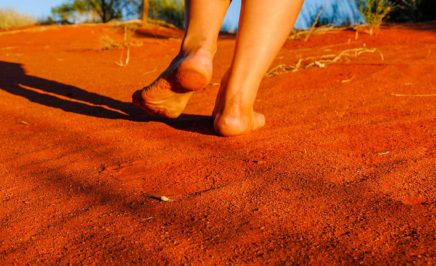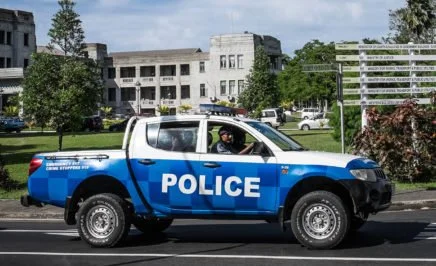May 2016
Recognition of Aboriginal and Torres Strait Islander people in the Australian Constitution has been hotly debated for many years, and not everyone is on board with the idea. So, where to from here?
Our Indigenous Rights Team have been following the Constitutional recognition debate closely, particularly the variety of different positions taken by Indigenous people across Australia. This is a quick update on where things are at today.
In December 2015, the Federal Government announced that it had established a Referendum Council to “advise us on progress and next steps towards a referendum to recognise Aboriginal and Torres Strait Islander peoples in the Australian Constitution”. On the release of the 2016 Closing the Gap Report, Prime Minister Turnbull declared that holding a referendum in 2017 is achievable.
However, while there is cross political party support for constitutional recognition and the mainstream media has largely characterised Aboriginal and Torres Strait Islander people as supportive of constitutional change whatever form it may take, things aren’t that straightforward.
There are a wide range of Indigenous views about constitutional reform and the official Recognise campaign, which has been funded to support a ‘yes’ vote on the referendum. There are also growing calls for negotiation of a treaty or treaties with Indigenous Peoples, either instead of, or alongside constitutional change. The State of Victoria has begun a process to look at self-determination, including the possibility of a treaty with Aboriginal Victorians.
Amnesty’s position is that wherever we go from here, the process towards treaty and/or constitutional recognition needs to be shaped by the views of Aboriginal and Torres Strait Islander people.
The Referendum Council met for the fourth time on May 10. Following that meeting, the Council announced that it will commence a consultation process “with three significant meetings with Aboriginal and Torres Strait Islander leaders, including traditional owners and representatives of peak bodies.” They also announced a concurrent “series of Indigenous consultations and community-wide consultations in the second half of 2016”.
Consistent with the right of Indigenous Peoples to Free, Prior and Informed consent, the outcomes of these consultations should determine the path we take as a nation on these issues. We will provide you with another update after those talks take place.
Want to know more?
Here’s some suggested further reading from Julian Cleary, our Indigenous rights campaigner:
- It’s Our Country, Indigenous Arguments for Meaningful Constitutional Recognition and Reform
- Final Report of the Expert Panel on Constitutional Recognition of Indigenous Australians
- Treaty vs Recognition – The importance of self-determination
- Reconciliation Victoria monthly updates
- Our submission to Consultation on Constitutional Recognition of Aboriginal and Torres Strait Islander Peoples
August 2015
Amnesty International has been keeping supporters informed on progress towards constitutional reform. In our last update we shared Amnesty’s submission to the Joint Select Committee on Recognition of Aboriginal and Torres Strait Islander Peoples. The final report of the Committee has now been released. Indigenous Rights Campaigner Roxanne Moore summarises the Committee’s recommendations, some recent developments and next steps.
The final report of the Joint Select Committee on Constitutional Recognition of Aboriginal and Torres Strait Islander Peoples (Committee) was released in June 2015. The Committee has recommended that a referendum be held on whether to recognise Aboriginal and Torres Strait Islander peoples in the Australian Constitution.
In addition, the Committee recommended that:
- Parliament dedicate a full day of debate to the Committee’s recommendations, with a view to achieving unity on the way towards a referendum and for Parliament to establish a process to oversee progress towards a successful referendum;
- Government hold Indigenous specific constitutional conventions, delegates from which would participate in national, diverse constitutional conventions to build support for a referendum;
- the Human Rights (Parliamentary Scrutiny) Act 2011 (Cth) be amended to include the United Nations Declaration on the Rights of Indigenous Peoples; and
- the referendum be held when it has the most chance of success.
On the question of what model reform should take, the Committee recommended that:
- Section 25 be repealed (prohibits voting based on race); and
- Section 51(xxvi) (which currently can be used to adversely discriminate against Indigenous people based on race) be repealed whilst retaining the power of the Commonwealth to legislate for Indigenous peoples.
Parliament considers three options for this reform:
Option 1:
- Insert section 51A, which includes language for formal recognition of Indigenous peoples as Australia’s First Peoples, and their languages, relationship to land, and culture, as well as giving the Commonwealth, states and territories the power to make laws for Indigenous peoples.
- Insert section 116A, which prohibits governments from discriminating on the grounds of race, colour or ethnic or national original, with the exception of special measures to alleviate disadvantage, discrimination or to provide certain protections.
Option 2:
- Insert a new chapter and section 80A, which would include formal recognition of Indigenous peoples as Australia’s First Peoples, and their languages, relationship to land and culture, as well as giving the Commonwealth the power to make laws for Indigenous peoples, but not to discriminate against them.
Option 3:
- Insert section 60A, which is essentially the same as Option 2, but extends the power to make laws for Indigenous peoples to all states and territories, and so long as Governments do not discriminate adversely against Indigenous peoples.
Several polls have been released this year on support for constitutional reform. Recognise released a poll in May finding that 87 per cent of Indigenous people would vote ‘yes’ to recognition in the Australian Constitution. Another poll from grassroots organisation IndigenousX and Celeste Liddle indicated far less support from those Indigenous people surveyed.
Another recent development was a meeting between selected Indigenous and political leaders on 6 July 2015. At the meeting, it was decided that a Referendum Council will be established to deliberate outstanding referendum issues, and there will be a series of community conferences around the country on the topic, for which the Committee will develop a consultation paper. However, recently at the Garma Festival it was reported that the idea to hold Indigenous specific conventions has been rejected by the Prime Minister.
Amnesty International will continue to monitor the progress of this reform and keep supporters informed.
March 2015
What is Amnesty’s position on constitutional recognition for Aboriginal and Torres Strait Islander Peoples? And what are the next steps for moving it towards a referendum?
Indigenous Rights Manager Tammy Solonec summarises Amnesty’s key recommendations in our submission to the Joint Select Committee.
In August and October last year we updated you on two important reports from a Joint Select Parliamentary Committee and a Review Panel about amending the Australian Constitution to recognise Aboriginal and Torres Strait Islander Peoples and remove racist elements. Amnesty has now finalised its submission to the Joint Select Committee.
Amnesty’s submission
Written submission to the Joint Select Committee closed on Friday 30 January. You can now read Amnesty’s full submission here.
Consistent with the right of Indigenous Peoples to free, prior and informed consent, Amnesty believes that high level of support for constitutional recognition and for the proposed wording among Aboriginal and Torres Strait Islander people themselves is a necessary first step.
Amnesty’s submission notes that there are a spectrum of views within the Aboriginal and Torres Strait Islander community about the campaign for constitutional recognition – ranging from strong support to opposition.
Here is a summary of our recommendations for what should be included from a human rights perspective, provided that there is a high level of support from within the Aboriginal and Torres Strait Islander community for constitutional recognition:
Amnesty International recommends:
- The repeal of sections 25 and 51(xxvi)
- The insertion of a new section 116A with prohibits discrimination on the basis of race, colour or ethnic or national origin
- The maintenance of the “peace, order and good governance” power to enable the Commonwealth to make laws with respect to Aboriginal and Torres Strait Islander peoples by inserting a new section 51A into the Constitution which includes a recognition statement that adequately reflects the aspirations of Aboriginal and Torres Strait Islander peoples and is developed in consultation with them
- That the proposal of the Expert Panel for a new section 127A which would codify English as the national language of Australia not proceed
- Provided there is a high level of support from Aboriginal and Torres Strait Islander peoples for the proposed form of recognition, that adequate support and funding for diverse public awareness and education efforts be provided in order to ensure a successful referendum outcome is achieved.
What’s next?
The Joint Select Committee must release their final report before July 2015. It is anticipated that this report will contain the much anticipated Draft Bill.
Amnesty International will continue to monitor progress and keep you informed.
October 2014
How is the debate on constitutional recognition for Aboriginal and Torres Strait Islander Peoples shaping up? And what are the next steps for moving it forward?
Recently two important reports have been released on just this. Indigenous Rights Manager Tammy Solonec cuts through the legal-ese and summarises the reports’ recommendations for us.
In September we updated you on the growing movement for Aboriginal and Torres Strait Islander Peoples to be recognised in Australia’s Constitution — for current racist elements to be removed, for protections against discrimination to be included, and for proper recognition of their continuing connection to this land and waters.
We told you about a Joint Parliamentary Committee and a Review Panel mapping the steps towards implementing this much-needed constitutional reform.
Both have now released important reports.
Review Panel — full report
The Review Panel authorised to gauge public support for the referendum by the Aboriginal and Torres Strait Islander Peoples Recognition Act 2013 has now released their report.
The Panel recommended that:
- The Federal Parliament urgently settles the final form of words and concludes debate on the model. To do this they recommend that a Referendum Council of trusted national figures is set up.
- The Parliament, state and territory governments and Aboriginal and Torres Strait Islander Peoples publicly re-declare their commitment to constitutional recognition and collaborate towards a referendum.
- A referendum is held no later than the first half of 2017.
- The Government continues to support and resource Recognise and its partner organisations.
- The Parliament amend the Aboriginal and Torres Strait Islander Recognition Act 2013 (for no more than three years) to demonstrate continuing commitment and ensure the Act does not sunset in March 2015.
Joint Select Committee — progress report
This week the Joint Select Committee on Constitutional Recognition of Aboriginal and Torres Strait Islander Peoples, chaired by Indigenous Parliamentarians Ken Wyatt and Nova Peris, released a Progress Report on the steps needed for us to achieve this much-needed constitutional reform.
The report, the second released by the Joint Select Committee, received cross-parliamentary support, and recommended that:
- Each House of Parliament set aside a full day of sittings to debate concurrently recommendations of the Joint Select Committee with a view to achieving near-unanimous parliamentary support for and building momentum towards a successful referendum.
- Section 25 (disqualification from voting) be repealed.
- The Expert Panel’s proposed new section 127A (re languages) not proceed.
- Section 51(xxvi) (the race power) be repealed.
- Parliament consider three structural options for constitutional recognition of Aboriginal and Torres Strait Islander Peoples, noting the committee’s view that any proposal must preserve both existing Commonwealth laws relying on Section 51(xxvi) and the Commonwealth’s power to make laws with respect to Aboriginal and Torres Strait Islander Peoples.
- A referendum to recognise Aboriginal and Torres Strait Islander Peoples in the Constitution take place at or shortly after the next federal election in 2016.
- The Aboriginal and Torres Strait Islander Peoples Recognition Act 2013 be extended to align with the proposed timing of a referendum.
Amnesty’s submission
A big thank you to activists who went along to a community hearing on constitutional recognition or sent in a written submission to the Joint Select Committee.
Written submission to the Joint Select Committee close on Thursday 30 October. You can read Amnesty’s full submission here on Thursday 6 November. In the meantime, here is a summary of Amnesty’s recommendations.
Amnesty International recommends:
- The allocation of adequate funding for delivery of a public education and awareness campaign outlining the proposed amendments to the Constitution;
- That the body of the Australian Constitution be amended to recognise Aboriginal and Torres Strait Islander Peoples, rather than preambular recognition only;
- The repeal of sections 25 and 51(xxvi) of the Constitution;
- That section 51(xxvi) be replaced by a new section 51A, which recognises Aboriginal and Torres Strait Islander Peoples as the first occupants of Australia and acknowledges their continuing relationship with the land and waters; and
- That a new section 116A, which prohibits discrimination on the grounds of race, colour or ethnic or national origin, be inserted.
What’s next?
The Joint Select Committee must release their final report before June 2015. It is anticipated that this report will contain the much anticipated Draft Bill.
Amnesty International will continue to monitor progress and keep you informed.
Kind regards,
Tammy Solonec
Indigenous Peoples’ Rights Manager





